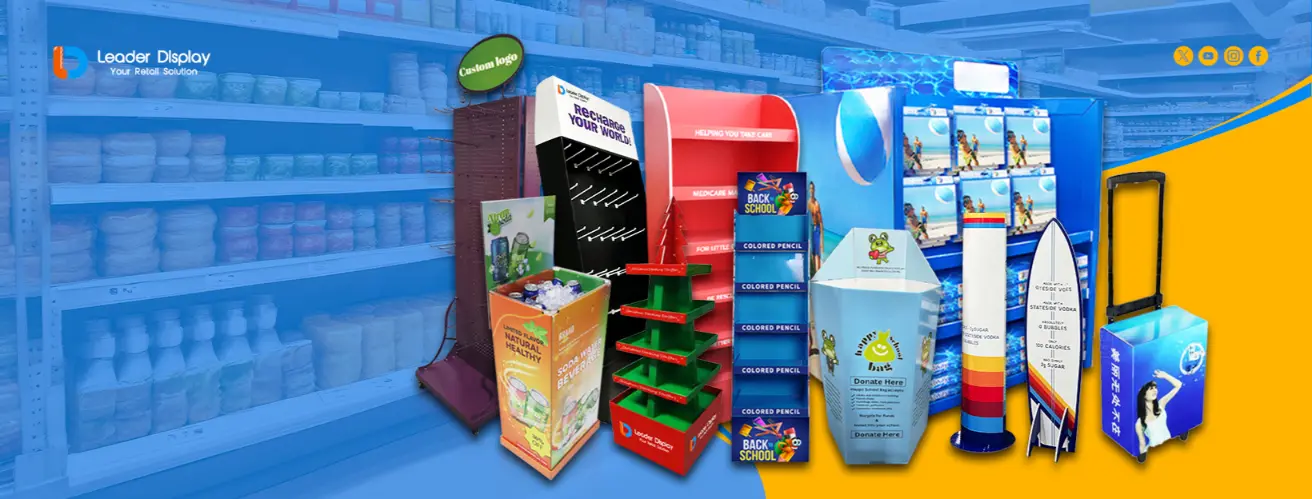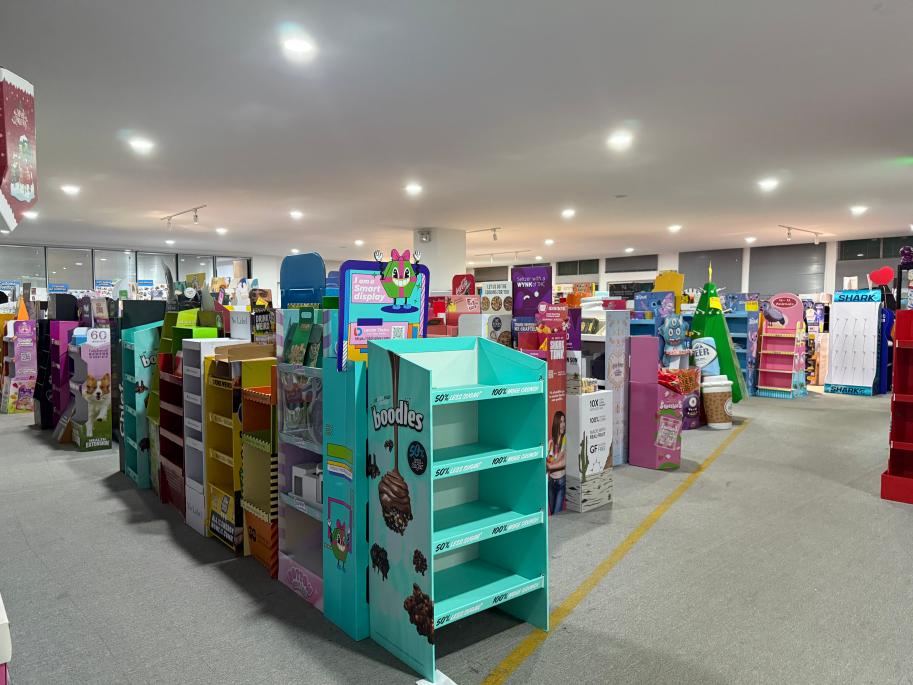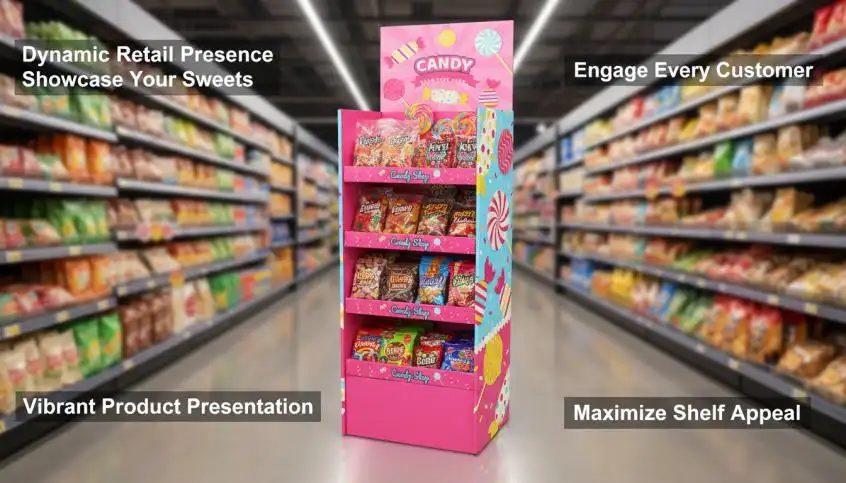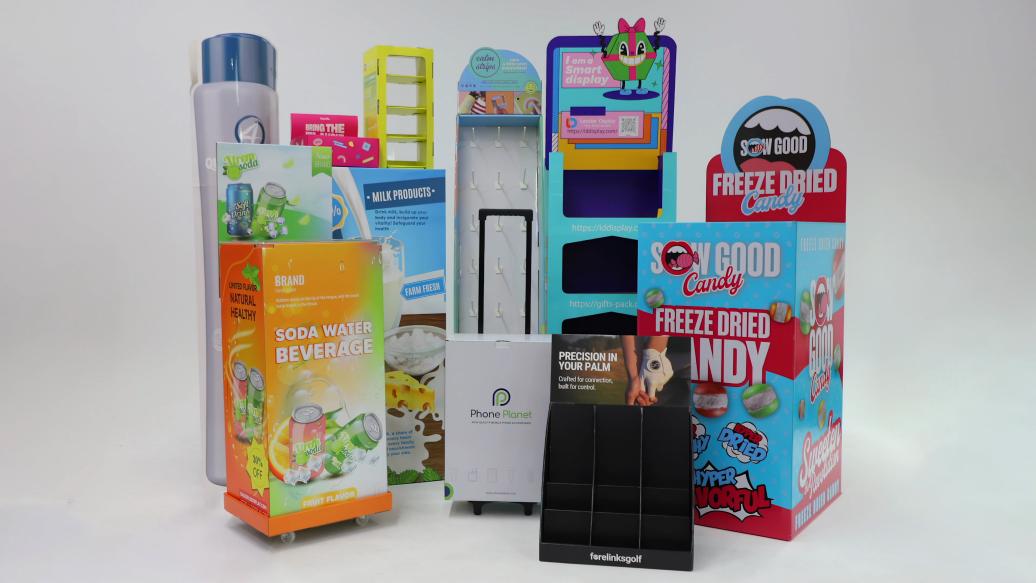Introduction
In the competitive world of retail, the presentation of products can make a significant difference in sales performance. One of the most effective and versatile tools for showcasing merchandise is the cardboard display with hooks. These displays offer a range of benefits, from cost-efficiency to customization, making them an ideal choice for businesses looking to maximize their retail space and boost sales.
The Importance of Effective Product Display
Before delving into the specifics of cardboard displays with hooks, it’s essential to understand why effective product display matters:
- Attracts Attention: A well-designed display can grab the attention of shoppers, drawing them towards a particular product or promotion.
- Enhances Visibility: Effective displays highlight products, making them more visible and accessible to customers.
- Influences Purchase Decisions: The right display can influence a customer’s decision to purchase by showcasing the benefits and features of a product in an appealing manner.
- Maximizes Space: Displays help in optimizing the use of available retail space, allowing for more products to be showcased without clutter.
- Creates a Brand Experience: Custom displays can convey brand identity and values, creating a memorable shopping experience.
What are Cardboard Displays with Hooks?
Cardboard displays with hooks are retail display units made from corrugated cardboard that incorporate hooks or pegboards to hang products. These displays are commonly used for small packaged goods, accessories, and promotional items. They come in various shapes and sizes, offering flexibility in design and functionality.
Benefits of Cardboard Displays with Hooks
1. Cost-Effective
Cardboard displays are significantly cheaper to produce than other materials like metal or plastic. This cost-effectiveness makes them an attractive option for retailers, especially those running seasonal or short-term promotions.
2. Lightweight and Portable
Cardboard displays are lightweight, making them easy to transport and set up. This portability is particularly beneficial for businesses that participate in trade shows, exhibitions, or need to frequently rearrange their store layout.
3. Customizable
Cardboard is a highly versatile material that can be easily customized to fit specific branding requirements. Retailers can print logos, graphics, and promotional messages directly onto the display, ensuring consistency with their brand image.
4. Eco-Friendly
In an era where sustainability is increasingly important to consumers, cardboard displays offer an eco-friendly solution. They are recyclable and can be made from recycled materials, aligning with environmentally conscious business practices.
5. Versatile
The addition of hooks to cardboard displays adds a layer of versatility. These hooks can hold a variety of products, from packaged goods to accessories, allowing retailers to showcase a wide range of merchandise in one compact unit.
Types of Cardboard Displays with Hooks
Cardboard displays with hooks come in various configurations, each suited to different retail needs. Here are some common types:
1. Countertop Displays
Countertop displays are small, compact units designed to sit on counters or tabletops. They are ideal for impulse buys and small items such as keychains, snacks, or cosmetic products.
2. Floor Displays
Floor displays are larger, freestanding units that can hold a significant amount of merchandise. These displays are perfect for high-traffic areas and can be strategically placed to attract maximum attention.
3. Pegboard Displays
Pegboard displays feature a perforated board with hooks that can be adjusted to accommodate different product sizes. This flexibility makes them suitable for a variety of items, from tools to accessories.
4. Hanging Displays
Hanging displays are suspended from ceilings or walls, saving valuable floor space. They are particularly useful for showcasing lightweight items and can be positioned at eye level to catch the customer’s attention.
Design Tips for Cardboard Displays with Hooks
Creating an effective cardboard display involves more than just attaching hooks to a piece of cardboard. Here are some design tips to consider:
1. Understand Your Audience
Know who your target customers are and design your display to appeal to their preferences and shopping habits. For example, a display for children's toys might feature bright colors and playful graphics, while a display for electronics could have a sleek, modern design.
2. Focus on Branding
Ensure that your display aligns with your brand’s identity. Use consistent colors, logos, and messaging to reinforce brand recognition and create a cohesive shopping experience.
3. Keep it Simple
A cluttered display can overwhelm customers and detract from the products being showcased. Keep the design clean and straightforward, highlighting the key features and benefits of the products.
4. Use High-Quality Printing
The quality of printing can significantly impact the effectiveness of your display. Invest in high-quality printing to ensure that graphics and text are sharp, vibrant, and professional-looking.
5. Incorporate Interactive Elements
Interactive elements, such as QR codes or digital screens, can enhance the customer experience and provide additional information about the products. This engagement can help to drive sales and create a memorable shopping experience.
Placement Strategies for Maximum Impact
The placement of your cardboard displays with hooks can greatly influence their effectiveness. Here are some strategies to consider:
1. High-Traffic Areas
Place your displays in high-traffic areas where they will be seen by the maximum number of customers. Entryways, checkout counters, and central aisles are prime locations.
2. Eye-Level Placement
Position displays at eye level to ensure that they are easily visible and accessible to customers. This placement increases the likelihood of catching the shopper’s attention and encouraging interaction with the products.
3. Cross-Merchandising
Use displays to cross-merchandise complementary products. For example, a display of baking utensils can be placed near baking ingredients, encouraging customers to purchase related items.
4. End Caps
End caps, or the ends of aisles, are valuable retail real estate. Use these areas to feature promotional items or seasonal products, as they are highly visible and often attract impulse buys.
5. Seasonal Adjustments
Adjust the placement of your displays based on seasonal trends and shopping behaviors. For instance, place holiday-themed displays near the front of the store during festive seasons to capitalize on the increased foot traffic.
Case Studies: Success Stories
To illustrate the effectiveness of cardboard displays with hooks, let’s look at some real-world examples:
Case Study 1: Snack Company
A well-known snack company used cardboard displays with hooks to launch a new line of protein bars. They placed the displays near checkout counters and in high-traffic aisles. The eye-catching design and strategic placement led to a 30% increase in sales of the new product within the first month.
Case Study 2: Cosmetics Brand
A cosmetics brand created customized countertop displays with hooks to showcase their new line of lip balms. The displays featured vibrant colors and engaging graphics, attracting the attention of younger customers. By placing the displays in beauty and personal care sections, the brand saw a significant boost in sales and brand awareness.
Case Study 3: Tool Manufacturer
A tool manufacturer utilized pegboard displays with hooks to organize and display their range of hand tools. The adjustable hooks allowed for easy customization to accommodate different tool sizes. By positioning the displays in hardware stores and home improvement centers, the manufacturer increased product visibility and saw a notable uptick in sales.
The Future of Cardboard Displays with Hooks
As retail continues to evolve, so too will the design and functionality of cardboard displays with hooks. Here are some trends to watch:
1. Integration of Technology
The integration of technology, such as augmented reality (AR) and digital displays, will enhance the interactivity and appeal of cardboard displays. Customers will be able to engage with products in new and exciting ways, driving sales and creating a more immersive shopping experience.
2. Sustainability
Sustainability will remain a key focus, with an increasing demand for eco-friendly materials and practices. Innovations in recyclable and biodegradable materials will make cardboard displays even more environmentally friendly.
3. Customization
Advances in printing and manufacturing technology will allow for greater customization of cardboard displays. Retailers will be able to create highly personalized and unique displays that align perfectly with their brand and product offerings.
4. Enhanced Durability
While cardboard is already a durable material, ongoing research and development will lead to even more robust and long-lasting displays. Enhanced durability will make cardboard displays a viable option for long-term use in a variety of retail environments.
Conclusion
Cardboard displays with hooks offer a versatile, cost-effective, and environmentally friendly solution for showcasing products in retail settings. By understanding their benefits, types, and design considerations, retailers can maximize their use and create compelling displays that drive sales and enhance the customer experience. As technology and sustainability continue to advance, the future of cardboard displays with hooks looks bright, promising even more innovative and impactful ways to engage shoppers and promote products.
Investing in high-quality, well-designed cardboard displays with hooks can significantly boost your retail strategy, making them a valuable addition to any store’s merchandising toolkit. Whether you are a small business or a large retailer, these displays provide a practical and effective way to capture customer attention and increase sales.
4o






4 Responses